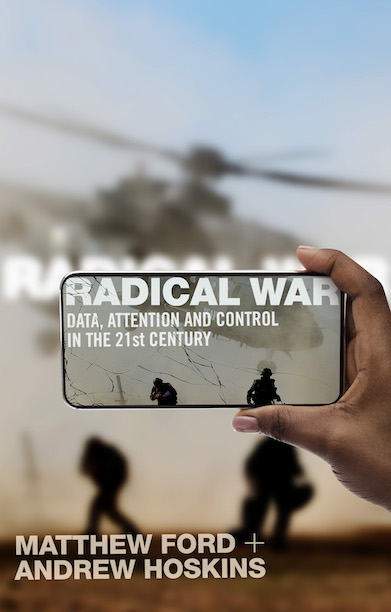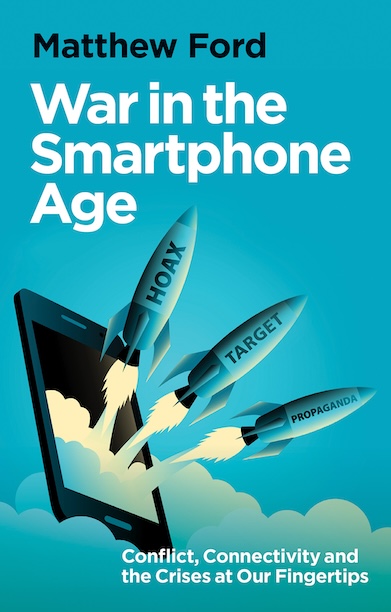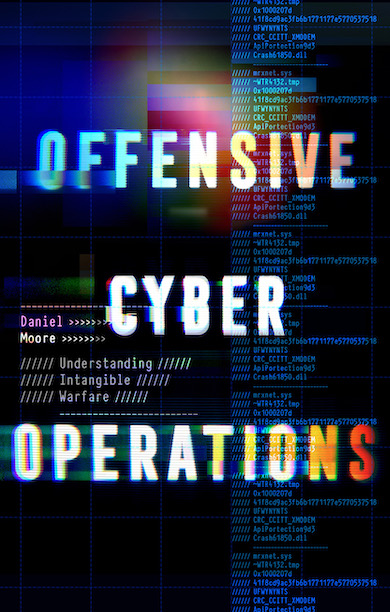Radical War
Data, Attention and Control in the Twenty-First Century
Interrogates the digital dissolution of established relationships between elite actors—militaries, governments, journalists—and war’s audiences, victims and bystanders.
Description
This book examines the digital explosion that has ripped across the battlefield, weaponising our attention and making everyone a participant in wars without end.
‘Smart’ devices, apps, archives and algorithms remove the bystander from war, collapsing the distinctions between audience and actor, soldier and civilian, media and weapon. This has ruptured our capacity to make sense of war. Now we are all either victims or perpetrators.
In Radical War, Ford and Hoskins reveal how contemporary war is legitimised, planned, fought, experienced, remembered and forgotten in a continuous and connected way, through digitally saturated fields of perception.
Plotting the emerging relationship between data, attention and the power to control war, the authors chart the complex digital and human interdependencies that sustain political violence today. Through a unique, interdisciplinary lens, they map our disjointed experiences of conflict and illuminate this dystopian new ecology of war.
Reviews
‘A comprehensive analysis of the new age of information warfare.’ — Parameters
‘The essential guide to the new war of all against all, where everything is weaponised, and where the lines between peace and conflict are forever blurred.’ — Peter Pomerantsev, author of This Is Not Propaganda: Adventures in the War Against Reality
‘As the security elites struggle to understand how information fits with the traditional domains of warfare, Ford and Hoskins show how information has become the overarching domain, with the smartphone, not the rifle, as the granular instrument of combat. A startling rethink of the twenty-first-century battlefield that blows away the traditional boundaries between state, society and the military.’ — Paul Mason, journalist
‘A fascinating assessment of the impact of our ubiquitous access to, and employment of, information and media. Positing a radical vision of war in which perception is reality, this book challenges our norms and, while you might not necessarily like it, you should probably read it!’ — Brigadier Khashi Sharifi OBE, British Army
‘Radical War recasts the means, methods–and increasingly memes–by which war today is waged. Excavating a transformative war-media nexus, it provides an astute analysis of why the battlefields of conventional geopolitics are migrating, and mutating into social media events.’ — Nisha Shah, Associate Professor, School of Political Studies, University of Ottawa
‘The Nazis went through a remarkably complicated process of communication to realise the industrial extermination of Europe’s Jews. In the post-modern age, this book shows, in stark detail, how the flattened structures of society, the end of analogue archives and instantaneous communications could simplify any decision-making process working towards genocide.’ — Philip W. Blood, historian, and author of Birds of Prey
Author(s)

Matthew Ford is Associate Professor in War Studies at the Swedish Defence University. The author of War in the Smartphone Age and Weapon of Choice and co-author of Radical War (all published by Hurst), he was the founding editor of the British Journal for Military History. His research focuses on technology and the conduct of war.
Andrew Hoskins is Professor of Global Security, University of Glasgow; and founding editor of the journals Digital War; Memory, Mind & Media; and Memory Studies.




